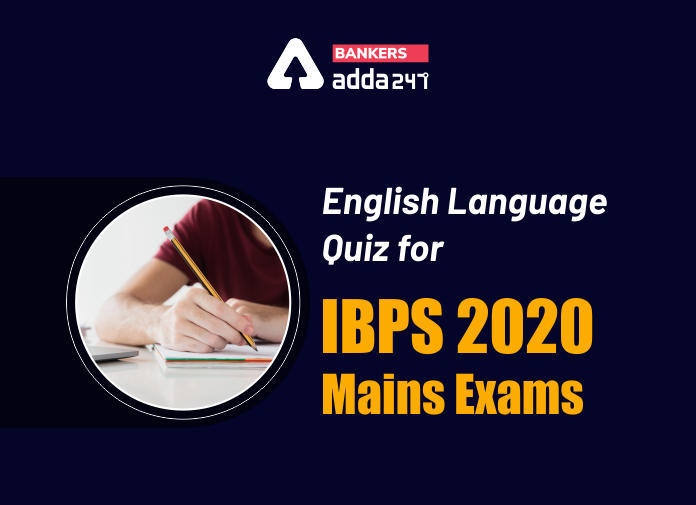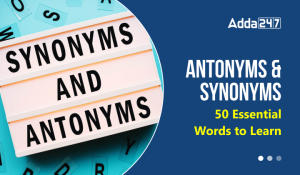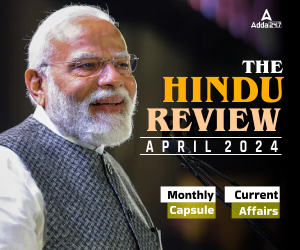
Emperor
Yayati was one the ancestors of the Pandavas. He had never known defeat. He
followed the dictates of the shastras, adored the gods and venerated his
ancestors with intense devotion. He became famous as a ruler devoted to the
welfare of his subjects.
But
he became prematurely old by the curse of Sukracharya for having wronged his
wife Devayani. In the words of the poet of the Mahabharata: “Yayati attained
that old age which destroys beauty and brings on miseries.” It is needless to
describe the misery of youth suddenly blighted into age, where the horrors of
loss are accentuated by pangs of recollection.
Yayati,
who found himself suddenly an old man, was still haunted by the desire for
sensual enjoyment. He had five beautiful sons, all virtuous and accomplished.
Yayati called them and appealed piteously to their affection: “The curse of
your grandfather Sukracharya has made me unexpectedly and prematurely old. I
have not had my fill of the joys of life; for not knowing what was in store for
me, I lived a life of restraint denying myself even lawful pleasures.
One of you ought to bear the burden of my old age and give his youth in return.
He who agrees to this and bestows his youth on me will be the ruler of my
kingdom. I desire to enjoy life in the full vigour of youth.
He
first asked his eldest son. That son replied: “O great king, women and servants
will mock at me if I were to take upon myself your old age. I cannot do so. Ask
of my younger brothers who are dearer to you than myself.”
When
the second son was approached, he gently refused with the words: “Father, you
ask me take up old age which destroys not only strength and beauty but also-as
I see-wisdom. I am not strong enough to do so.”
The
third son replied; “An old man cannot ride a horse or an elephant. His speech
will falter. What can I do in such a helpless plight? I cannot agree.”
The
king was angry and disappointed that his three sons had declined to do
as he wished, but he hoped for better from his fourth son, to whom he said:
“You should take up my old age. If you exchange your youth with me, I shall
give it back to you after some time and take back the old age with which I have
been cursed.”
The
fourth son begged to be forgiven as this was a thing he could by no means
consent to. An old man had to seek the help of others even to keep his body
clean, a most pitiful plight. No, much as he loved his father he could not do
it.
Yayati
was struck with sorrow at the refusal of the four sons. Still, hoping against
hope, he supplicated his last son, who had never yet opposed his wishes; “You
must save me. I am afflicted with this old age with its wrinkles, debility and
grey hairs as a result of the curse of Sukracharya. It is too hard a trail! If
you will take upon yourself these infirmities, I shall enjoy life for
just a while more and then give you back your youth and resume my old age and
all its sorrows. Pray, do not refuse as your elder brothers have done.” Puru,
the youngest son, moved by filial love, said: “Father, I gladly give you my youth
and relieve you of the sorrows of old age and cares of State. Be happy.”
Hearing these words Yayati embraced him.
As
soon as he touched his son, Yayati became a youth. Puru, who accepted the old
age of his father, ruled the kingdom and acquired great renown.
Q1. What was/were the reason(s) for
Yayati’s premature old age?
(a) He was addicted to opium.
(b) He was cursed for not devoting his
life for the welfare of his subjects.
(c) He was cursed by Sukracharya for
having wronged his wife, Devayani.
(d) He had been punished by the gods for
not following the dictates of the shastras.
(e) All the above
Q2. What was the desire which haunted
Yayati when he turned old suddenly?
(a) The desire for reputation
(b) The desire for wealth
(c) The desire for youth
(d) Both (A) and (C)
(e) Both (B) and (C)
Q3. What did Yayati ask his five sons to
do for him?
(A) He asked them to send him to the
forest where he would live an austere life to attain mental poise.
(B) He asked them to bear the burden of
his old age and give their youth in return.
(C) He asked them to bring him a harlot
so as to gratify his lust.
(a) Only (A)
(b) Only (B)
(c) Only (C)
(d) Both (A) and (C)
(e) Both (B) and (C)
Q4. Why did Puru accept the old age of
his father?
(a) He was moved by filial love for his
father.
(b) He wanted to rule the kingdom and
deny the share of property to his elder brothers.
(c) He wanted to experience premature
old age just like his father.
(d) He wanted to impress his father so
that he could get the throne instead of his brothers.
(e) None of these
Q5. What message does the author want to
leave behind through the passage?
(a) Human desire for everlasting youth
is irreleveant.
(b) Nothing can ever satisfy the desire
of a man.
(c) One should learn to bear with one’s
infirmities.
(d) One should live austerely.
(e) None of these
Directions (6-8):
Choose the word/group of words which is MOST SIMILAR in meaning to the
word/group of words printed in bold as used in the passage.
Q6. Declined
(a) reduced
(b) refused
(c) rebuked
(d) accepted
(e) agreed
Q7. Restraint
(a) curbed
(b) reposeful
(c) respite
(d) repression
(e) solvent
Q8. Accentuated
(a) enhanced
(b) adopted
(c) praised
(d) acquiesced
(e) greeted
Directions (9-10):
Choose the word/group of words which is MOST OPPOSITE in meaning of the
word/group of words printed in bold as used in the passage.
Q9. Vigour
(a) strength
(b) impotency
(c) gloom
(d) virility
(e) viability
Q10. Infirmities
(a) weaknesses
(b) rigidity
(c) capabilities
(d) skills
(e) insanity
Directions (11-15):
Rearrange the following six sentences (A), (B), (C), (D), (E) and (F) in the
proper sequence to form a meaningful paragraph and then answer the question
given below.
(A) Moreover, No Director, member of local board, local committee
or an officer of the State Bank shall be eligible to be the auditor.
(B) Within three months of the closing date, it has to furnish to
the Central Government and the Reserve Bank its balance sheet and profit-and-loss
account together with auditors’ report and a report by the Central Board on the
working and activities of the bank.
(C) The State Bank has to close its books and balance accounts each
year as on 31 March or such other date as may be specified by the Central Govt.
(D) Finally, The auditors’ report and the report of the Central
Board have to be placed before the Parliament.
(E) The audit may be conducted by any person duly qualified to be
auditors of companies under Section 226 of the Companies Act.
(F) Thus the auditors are appointed only by the Reserve Bank in
consultation with the Central Government.
Q11. Which of the following should be the FIRST
sentence after rearrangement?
(a) A
(b) B
(c) D
(d) F
(e) C
Q12. Which of the following should be the SECOND
sentence after rearrangement?
(a) C
(b) A
(c) B
(d) E
(e) F
Q13. Which of the following should be the THIRD
sentence after rearrangement?
(a) E
(b) C
(c) A
(d) B
(e) D
Q14. Which of the following should be the FOURTH
sentence after rearrangement?
(a) B
(b) F
(c) E
(d) A
(e) C
Q15. Which of the following should be the LAST
(SIXTH) sentence after rearrangement?
(a) F
(b) D
(c) C
(d) B
(e) A
SOLUTIONS:
S1. Ans.(c)
Sol. He was cursed by Sukracharya for having
wronged his wife, Devayani.
S2. Ans.(d)
Sol. Both (A) and (C)
S3. Ans.(b)
Sol. Only (B)
S4. Ans.(a)
Sol. He was moved by filial love for his
father.
S5. Ans.(b)
Sol. Nothing can ever satisfy the desire of a
man.
S6. Ans.(b)
Sol. Declined means to politely refuse (an invitation or offer). So, Refused is the
word which is similar in meaning to it.
S7. Ans.(a)
Sol. Restraint means a measure or
condition that keeps someone or something under control. So, Curbed is the word which is similar in meaning to
it.
S8. Ans.(a)
Sol. Accentuated means to emphasize. So, Enhanced is the word which is similar in
meaning to it.
S9. Ans.(b)
Sol. Vigour means energy.
So, Impotency is the word which is opposite in meaning to it.
S10. Ans.(c)
Sol. Infirmities means the
state of being weak in health or body. So, Capabilities is the word which is opposite in meaning to it.
S11. Ans.(e)
Sol. The proper sequence of sentences to form a meaningful
paragraph will be CBEAFD.
S12. Ans.(c)
Sol. The proper sequence of sentences to form a meaningful
paragraph will be CBEAFD.
S13. Ans.(a)
Sol. The proper sequence of sentences to form a meaningful
paragraph will be CBEAFD.
S14. Ans.(d)
Sol. The proper sequence of sentences to form a meaningful paragraph
will be CBEAFD.
S15. Ans.(b)
Sol. The proper sequence of sentences to form a meaningful
paragraph will be CBEAFD.
PDF LINK FOR 19TH NOVEMBER ENGLISH QUIZ



 English Language Notes for Competitive E...
English Language Notes for Competitive E...

